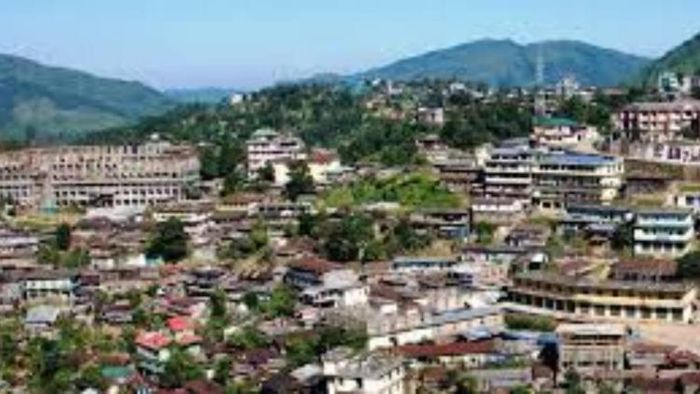Student group alleges disparity in developmental spending in Eastern Nagaland
The Eastern Naga Students' Federation (ENSF) spoke out today against what can be termed as a "biased" distribution of government funds in the state's Eastern Naga regions.

- Jul 23, 2022,
- Updated Jul 23, 2022, 5:19 PM IST
The Eastern Naga Students' Federation (ENSF) spoke out today against what can be termed as a "biased" distribution of government funds in the state's Eastern Naga regions.
Voicing their angst, the ENSF, via a press release, mentioned that there has been an infinite disparity in orchestrating and allocating the government shares despite the constitutional rights enshrined in Article 371 (2) (b) of the Indian Constitution. The article states that “Where any money is provided by the Government of India to the Government of Nagaland to meet the requirements of the state of Nagaland as a whole, the Governor shall in his discretion arrange for an equitable allocation of that money between Tuensang district and the rest of the state.”
The ENSF stated that the very provision which was to cater and mitigate with the best ulterior motive to bring about long-lasting peace, prosperity, and development in the state was never maintained by Nagaland state machinery.
It said that under the PMJVK, Ministry of Minority Affairs, the Eastern Naga areas were allocated “arguably with just Rs 11.95 crore out of Rs 279.72 crore.”
It further revealed that in the list of priority projects under North-Eastern Council (NEC) 2022-23, out of 30 projects under the state, an estimated cost of (normal Rs 58.11 cr, projection Rs 120 cr), only a lone project, at an estimated cost of Rs 3.50 cr was earmarked for Eastern Nagaland.
Further, it noted that from the Ministry Of Tribal Affairs (SCA to TSS Division) funds under special assistance to Tribal Sub-Scheme during 2020-21(creation for capital asset-non recurring), out of total amounting Rs 9,09,30,000 for 17 projects, only Rs 1.5 cr was allocated for Eastern Nagaland.”
The ENSF said that such a “hoodwinked, biased and step-motherly” attitude was “maintained since the inception of the state; the intensity of suppression and deprivation that the denizens of Eastern Nagaland had faced since time immemorial, and the excruciating pains inflicted upon them are ineffable despite state machineries being very much cognizant of the horrendous conditions of the area.”
The federation objected to the “biased distribution of funds as corroborated in the recent selection process.” It demanded that all the proposed and approved projects under the existing departments in Nagaland be reviewed and allocated with equity, in the larger interest of the Nagas. “The trend of inclining towards a section of people/areas in the process of development will only jeopardize the very fabric of Naga integration in the near future,” it said.
The ENSF added that the attitude maintained by today’s Nagaland State Government is “completely a mockery to the preamble of the constitution as the very gesture jeopardizes the idea of fraternity, equality, and justice.”
It expressed concern that in the midst of today’s contemporary society flourishing with rapid globalization and intense advancement in various activities of life, “the land of Eastern Nagaland remained a remote, barren land with socially and economically backward despite the surplus inbound of capital invested by the Central Government in order to develop the Eastern region.”
“There is no plausible sign of development because the government of today, despite being apprehensive, has never shown keen interest to address the needs of the people and bid to felicitate the needs despite persistent hues and cries over the issues now and then." The Eastern region of Nagaland state is today hems in with the most deplorable road conditions, lack of human resource developments and infrastructure, which have potentially contributed towards the economic and social backwardness of the region,” the ENSF maintained."
It blamed the “clandestine and arbitrary motives” of the government machinery for “orchestrating and allocating the schemes and funds for the development of the state vis-à-vis the development projects as a whole.”
The federation highlighted that multiple planned plans, programmes, and development projects are being carried out by various agencies of the Nagaland government, in an effort to improve the state's overall social, economic, and developmental conditions. The implementation of the same, it was alleged, had been very uneven.